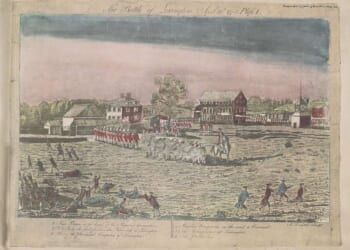After four years of strong conservative governance in Virginia, Republicans in the state are weary of a fall election cycle that could spell trouble for the GOP. Though the Republican Gov. Glenn Youngkin enjoys a high approval rate in statewide polling, he is term-capped and will not feature on this November’s gubernatorial ballot.
Virginia voters will instead select between two women when they enter polling stations this fall, a historic first for the state. The former House Rep. Abigail Spanberger is besting the sitting Lt. Gov. Winsome Earle-Sears in early polling of the gubernatorial election. Spanberger also holds a considerable fundraising edge, with the former CIA operations manager out raising Earle-Sears by more than $3 million in the first quarter of 2025. Although Spanberger more than doubled the amount of money raised by Earle-Sears in the first three months of the year, Earle-Sears was prohibited from raising money during the 45 day General Assembly session in January and February. Spanberger’s cash-on-hand advantage now sits at more than $7 million, a gap that Earle-Sears will attempt to bridge as the race heats up this spring and summer.
Statewide polling finds Spanberger with a comfortable lead in the spring cycle. The former Congresswoman is ahead by 15 percent in a Roanoke College poll, up by 10 percent in a VCU Wilder School poll, and leading by five percent in a Christopher Newport poll. Earle-Sears is only down one percent in a January poll released by Emerson with 17 percent remaining undecided. Even in the best case scenario, Earle-Sanders appears to have ground to cover as the race heats up.
One hurdle Earle-Sears will have to overcome is a significant shift in the political conditions that paved the way for Youngkin to become the first Republican governor in nearly 10 years. The Covid pandemic was a major factor in that election, and concerns over mandates and educational overreach spurred independent and soft-left voters to the Republican side.
Youngkin heavily benefited from gaffes by the Democrats in the run-up to Election Day. Many Virginia voters were aghast by comments made by Gov. Ralph Northam regarding third-trimester abortions. When discussing “non-viable” fetuses and those with “severe deformities,” Northam appeared to endorse infanticide, stating: “The infant would be delivered. The infant would be kept comfortable. The infant would be resuscitated if that’s what the mother and the family desired, and then a discussion would ensue between the physicians and the mother.” Though his comments were incorrectly quoted and taken out of context online, the damage had been done
On the campaign trail, too, Democrats struggled with messaging. The Democrat gubernatorial candidate Terry McAuliffe argued that parents should have less of a role in what their children are taught in state schools. In an era that was characterized by fights over educational standards that many felt had skewed socially liberal, McAuliffe stated that he was “not going to let parents come into schools and actually take books out and make their own decisions.” It was a statement that played a key role in Youngkin’s ascent according to polling done by CreativeDirect after the election.
Youngkin emerged as a polished, beltway-friendly businessman who showed a willingness to genuinely hear the qualms of the MAGA right. Virginia, once a deep red political machine, has rapidly shifted to the left in the last two decades and the northern corridor from Fredericksburg to Washington, DC has emerged as the most powerful region in Virginia politics. Youngkin, with his well-pressed suits and his quarter-century background as co-CEO of a private-equity firm, the Carlyle Group, played in a unique way that assuaged the fears of more moderate voters.
Earle-Sears, the gun-toting Marine Corps veteran, could struggle to resonate with that all-important voting bloc as evidenced by early deficits in polling and fundraising. Online, the MAGA right, too, appears concerned about Earle-Sears’s bona fides. Two members of that coalition, the former State Sen. Amanda Chase and the former Virginia Del. Dave LaRock, mounted bids to make the Republican’s primary ballot in July. LaRock failed to make the 10,000 signature quota and, although Chase has vocally claimed she will appear on the primary ballot, the Virginia GOP confirmed via X on Monday that Earle-Sears will be the Republican nominee for governor.
Subscribe Today
Get daily emails in your inbox
Worse than a split coalition, however, is the undeniable fact that Spanberger is not like her Democrat peers who mucked the 2021 race. Spanberger is unlikely to make any untimely gaffes or earth-shattering statements that nosedive her campaign near the finish line. This is a woman who, through her career as a bureaucrat and a politician, has succeeded in presenting as a smart, affable, diligent character who doesn’t make mistakes. In her favor too, is the chaos currently emanating from Washington. In a state so interlinked with the conditions of DC, President Donald Trump’s decision to wage war with the federal bureaucracy will place Earle-Sears on the back foot as many suburban families in the Acela corridor enter the voting booths.
Earle-Sears will also have to overcome economic concerns as Trump wheels and deals on the tariff front. On Tuesday, the Wall Street Journal reported that the Dow is headed for “its worst April since 1932,” and gold futures, pricing in a weak dollar, have surged to historic highs. Despite his sudden and stunning change of heart on just-announced tariffs for all countries not named China, Trump has done little to tamp down growing fears in the markets, and on Monday called Fed Chair Jerome Powell “a total loser” before demanding Powell lower interest rates.
With Virginia so closely linked to DC, the instability emanating from our nation’s capital will no doubt play a significant role in the gubernatorial election this Fall. It all could spell big trouble for Earle-Sears, who is likely to be on the defensive throughout the campaign despite a strong showing as lieutenant governor in an administration that found broad support among Virginia voters these last four years.







